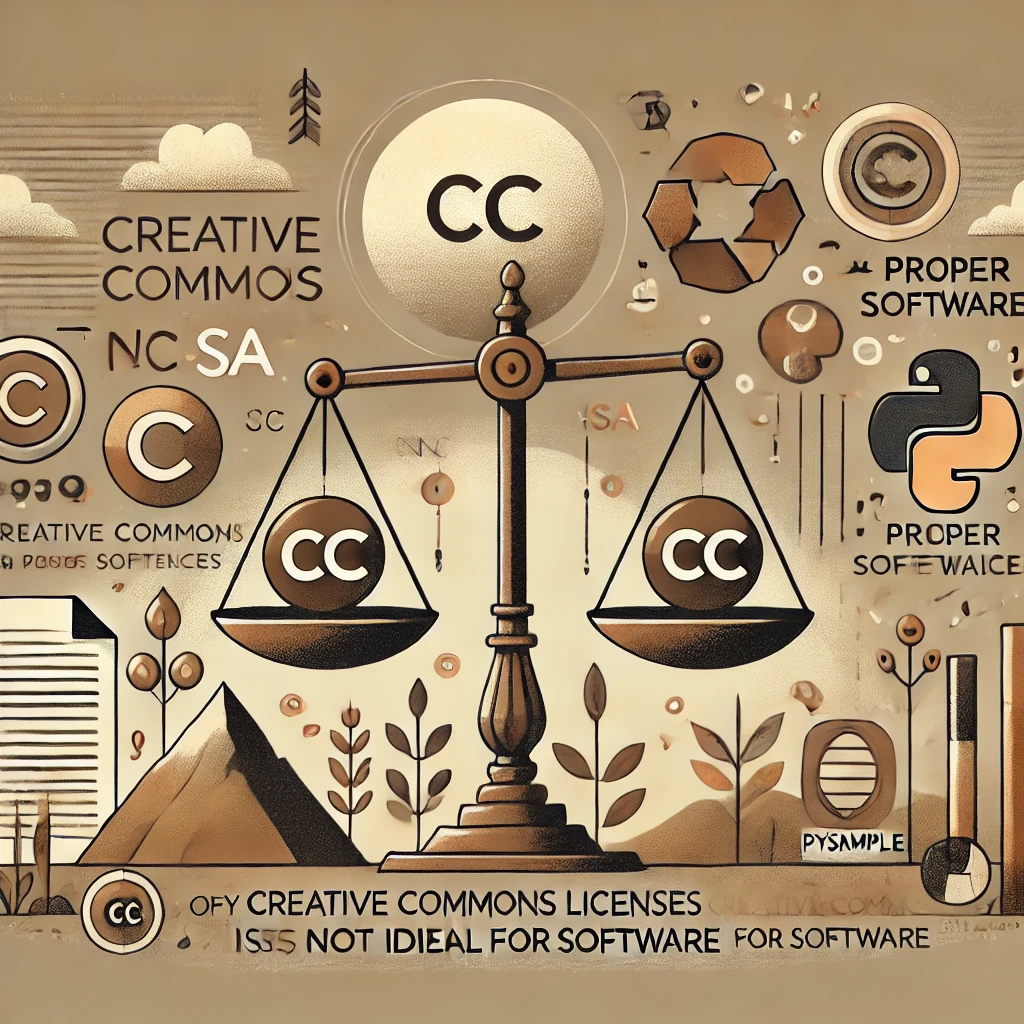Why not use Creative Commons (CC) Licenses for Software (CC:NC CC:SA)

- CC licenses do not contain specific terms about the distribution of source code and binaries
- CC licenses do not address patent rights
- CC licenses are currently not compatible with the major software licenses
The Creative Commons license are designed for:
- Textual works: books, articles, blog posts, poems, etc.
- Visual works: photographs, illustrations, paintings, videos, etc.
- Audio works: music, podcasts, sound recordings, etc.
- Educational materials: courses, lesson plans, presentations, etc.
- Research data: datasets, databases, findings, etc.
Software alternatives to the Creative Commons:
- Instead of the CC0 Creative Commons Zero (effectively a public domain dedication) consider 0BSD or MIT-0.
- The CC:NC (Non Commercial) consider a Fair Code / Source Available license, there are many to choose from:
- Polyform Non-Commercial or Sustainable Use License: only personal non-commercial use is permitted
- Functional Source License: 2 year non-compete, then converts to Apache 2.0 future license
- Elastic License: core functionality can't re-sold as a hosted service
- Confluent License: core functionality can't be re-sold as a directly competitive product
- Business Source License: No production use permitted for 4 years, then converts to GPL2
- OS$: No unpaid use by Large Enterprises
- See our index of known Fair Code / Source Available licenses
- Instead of the CC:SA (Share Alike) use the recursive copyleft license like the GPL3.